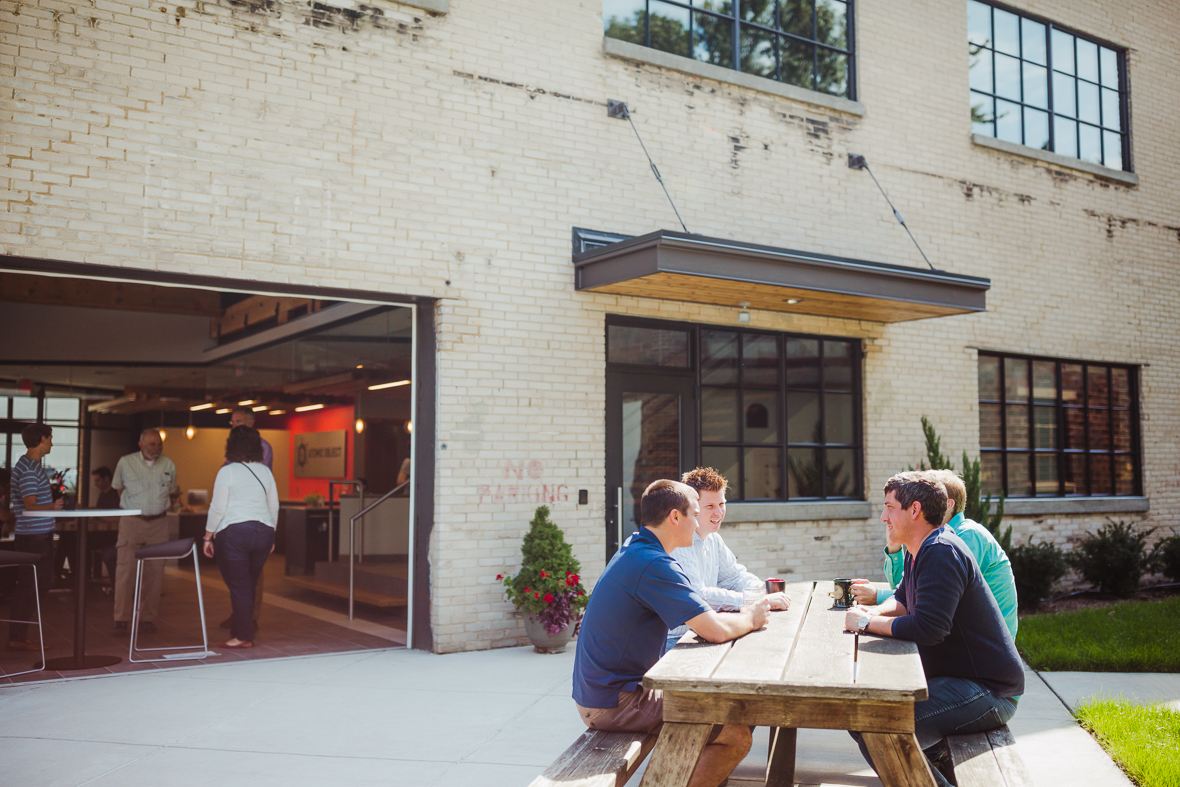
Oftentimes, we think of projects in terms of two statuses: in-progress or complete. As software designers who work on complex, long-term projects, “completing” a project is not a daily occurrence. Getting to “finalized,” shipped software is a process, and the end of that process is usually filled with jubilation and celebration. I mean, it’s not mission-control-landing-someone-on-the-moon every time, but it’s close.
Lately, I’ve learned that it helps to look for the small victories that happen throughout the life of the project. And more importantly, to embrace those victories and let them affect you—significantly.
Small Victories vs. Minor Setbacks
I used to let minor setbacks get to me. Maybe a presentation didn’t go well, an early concept for a workflow wasn’t understood, or I didn’t think through a particular user interaction very well.
My confidence would be shot for the day. I thought the project was doomed; I was going to get kicked off the project; I would never have a good idea again for the rest of my life…
But the weird thing is that I didn’t let small victories affect me with the same magnitude. When a workflow made sense, or a UI was “cool,” or the presentation went well, I was “just doing my job.” I didn’t experience the reverse of side effects from minor setbacks. I didn’t gain significantly more enthusiasm for the project, I didn’t have extra motivation, and I didn’t feel like everything I was going to do from now to eternity was going to be awesome.
I needed a change.
Doing Good
Recently, I spent some time volunteering my design skills for a non-profit organization at Give Camp. During the event, I was tasked with redesigning and building a non-profit’s website. I knew that, at the end of the project, I was going to feel good about myself and the work I had done. But it was a small victory I experienced sometime late Saturday night that truly got to me.
I showed the client where we were in terms of building the site. As I walked through the site, from the Homepage to About to Donation, I caught my two clients smiling, with a little water in their eyes.
Now, I hadn’t done anything special. I was just using a WordPress template that I could alter a little bit to fit their content, and I’d added some large imagery showing the organization doing its good work. Pretty typical web design stuff.
The site wasn’t even done yet. I just wanted to make sure they liked the direction before I built out additional pages. So why were they so happy?

It was in that moment that I realized they didn’t care what they were looking at. They cared that something had been done—something that was better than what they currently had. They could see their mission coming to life through the website. They could see the potential the site could provide.
Volunteering is a rewarding experience in itself, but when you see a client get motivated by a quick-and-dirty design review and start to “dream,” it does something to you.
I was humbled. I hadn’t feel like I had really accomplished anything. But to them, I had done everything.
Seeing the Dream
At the beginning of every Atomic project, we ask, “What does success look like?” The answer can take many different forms, but it’s always rooted in a dream. For-profit companies, non-profit organizations, whatever—they all have dreams. They’re all working toward something, and they’ve identified custom software as part of the solution.
As a designer at a consultancy, I have the opportunity to interface with our clients all of the time–during project kickoffs, product strategy meetings, design reviews, and so on. These meetings and presentations involve more than delegating tasks and next steps. These are the moments when dreams are expressed.
Every interaction that we have with our clients is an opportunity for them to express their dreams. Whether they are overtly happy, have concerns, or even seem nonchalant, their emotions are a direct reflection of seeing the dream become a reality.
Big Dreams are Driven by Small Victories
In the past, I equated my work and people’s reactions to it in terms of my ability, which was completely wrong. It’s what led to being overly critical of myself when things didn’t go smoothly. And when things went well—after all, they’re supposed to do that. No need to get excited.
But I’ve learned that my ability has nothing to do with it. Clients want their vendors to succeed, because our success brings their success.
When they give criticism, it’s because what we presented doesn’t match their dream. But—and it’s a big “but”—when things go well, when they are jubilated and excited, I embrace it more than ever. Our clients have put their trust in me as a designer and a consultant, to help bring their dream into fruition. They’ve included me in this journey.
Reaching that final, shipped software status is a big achievement. But it’s the small victories along the way that give us the energy to reach that completion. They give us renewed motivation, especially during setbacks.
They may be small victories, but I am humbled to be a part of them.

